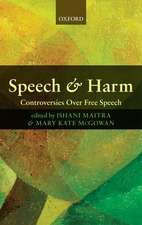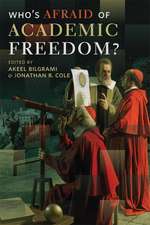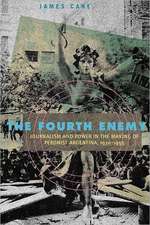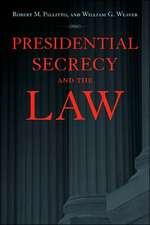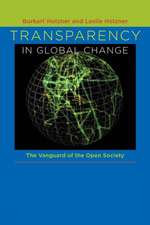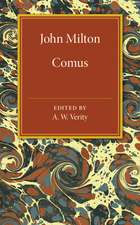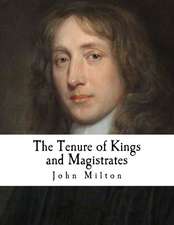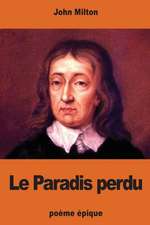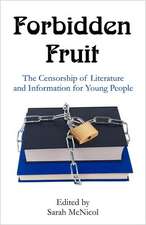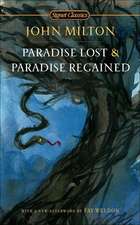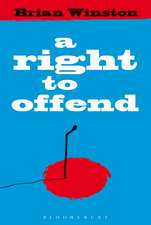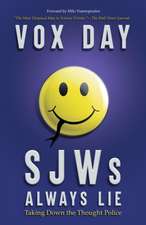Areopagitica
Autor John Miltonen Limba Engleză Paperback – 15 ian 2020
Milton, a child prodigy, aimed to be the best Latin poet in Europe. He made many friends on a trip to Italy, but he was warned by Galileo himself, then under house arrest, not to let censorship happen in England as it had in Italy. This may have led Milton, on his return, to turn his pamphleteering skills from the Divorce question to the issue then before the Long Parliament - government licensing of all printed materials. Shortly after Areopagitica was published, Oliver Cromwell appointed Milton his Latin secretary. Teachers- a Supplement Edition: Areopagitica filled with background information is available in print format at http: //www.createspace.com/3674947. This provides the same text, with the same page numbering, as the student edition, with a wealth of information organized around typical student questions, plus a glossary. Here are the questions:
Preface for Teachers
Why is Areopagitica important?
Who was John Milton?
Who was in Milton's family?
What was his childhood like?
What happened during Milton's college career?
How did Milton prepare himself after college?
What happened on Milton's trip to Italy?
Did Milton change on returning to England?
Did Milton marry?
What was he writing at this time?
Why did Milton use this title?
Why did he write Areopagitica?
What was the public reaction to Areopagitica?
What did the early critics say about Milton?
Why was England in a turmoil in the 1640s?
What did King Charles expect to achieve?
What was the Long Parliament?
How did Cromwell rise to prominence?
How had the press been restricted?
What points does Milton make?
Who states the other side of the argument?
What is special about printing?
How many people could read?
Is freedom of the press the same as freedom of speech?
Is freedom of the press a dead issue?
What books were in Milton's library?
Is Milton's style important?
What do modern critics say?
Was Milton borne out by history?
What was the printing history of Areopagitica?
What happened in Milton's later life?
Bibiography
Notes to the text
Glossary
| Toate formatele și edițiile | Preț | Express |
|---|---|---|
| Paperback (19) | 26.34 lei 3-5 săpt. | +2.95 lei 7-13 zile |
| Mint Editions – 31 ian 2021 | 26.34 lei 3-5 săpt. | +2.95 lei 7-13 zile |
| CREATESPACE – | 37.98 lei 3-5 săpt. | |
| CREATESPACE – | 44.13 lei 3-5 săpt. | |
| Humanist Classics – 31 iul 2011 | 44.54 lei 3-5 săpt. | |
| CreateSpace Independent Publishing Platform – | 44.95 lei 3-5 săpt. | |
| – | 45.36 lei 3-5 săpt. | |
| CREATESPACE – | 45.94 lei 3-5 săpt. | |
| CreateSpace Independent Publishing Platform – | 51.99 lei 3-5 săpt. | |
| CREATESPACE – | 65.65 lei 3-5 săpt. | |
| CREATESPACE – | 91.43 lei 3-5 săpt. | |
| Alpha Editions – 15 ian 2020 | 211.22 lei 3-5 săpt. | |
| – | 58.29 lei 6-8 săpt. | |
| ARC MANOR – 13 mar 2008 | 59.27 lei 6-8 săpt. | |
| NuVision Publications – 5 mai 2010 | 59.72 lei 38-44 zile | |
| Blurb – 20 aug 2022 | 61.70 lei 6-8 săpt. | |
| LIGHTNING SOURCE INC – 24 oct 2018 | 61.83 lei 17-23 zile | |
| Book Jungle – 27 iul 2008 | 81.07 lei 6-8 săpt. | |
| Book Jungle – 7 mai 2008 | 81.07 lei 6-8 săpt. | |
| LIGHTNING SOURCE INC – 16 mai 2018 | 117.15 lei 17-23 zile |
Preț: 211.22 lei
Nou
Puncte Express: 317
Preț estimativ în valută:
40.42€ • 42.28$ • 33.57£
40.42€ • 42.28$ • 33.57£
Carte disponibilă
Livrare economică 12-26 martie
Preluare comenzi: 021 569.72.76
Specificații
ISBN-13: 9789353970598
ISBN-10: 9353970598
Pagini: 472
Dimensiuni: 152 x 229 x 28 mm
Greutate: 0.69 kg
Editura: Alpha Editions
ISBN-10: 9353970598
Pagini: 472
Dimensiuni: 152 x 229 x 28 mm
Greutate: 0.69 kg
Editura: Alpha Editions
Notă biografică
John Milton (1608 - 1674) was an English poet, polemicist, man of letters and civil servant for the Commonwealth of England under Oliver Cromwell. He wrote at a time of religious flux and political upheaval and is best known for his epic poem Paradise Lost (1667), written in blank verse. Milton's poetry and prose reflect deep personal convictions, a passion for freedom and self-determination and the urgent issues and political turbulence of his day. Writing in English, Latin, Greek, and Italian, he achieved international renown within his lifetime and his celebrated Areopagitica (1644)-written in condemnation of pre-publication censorship-is among history's most influential and impassioned defenses of free speech and freedom of the press.



